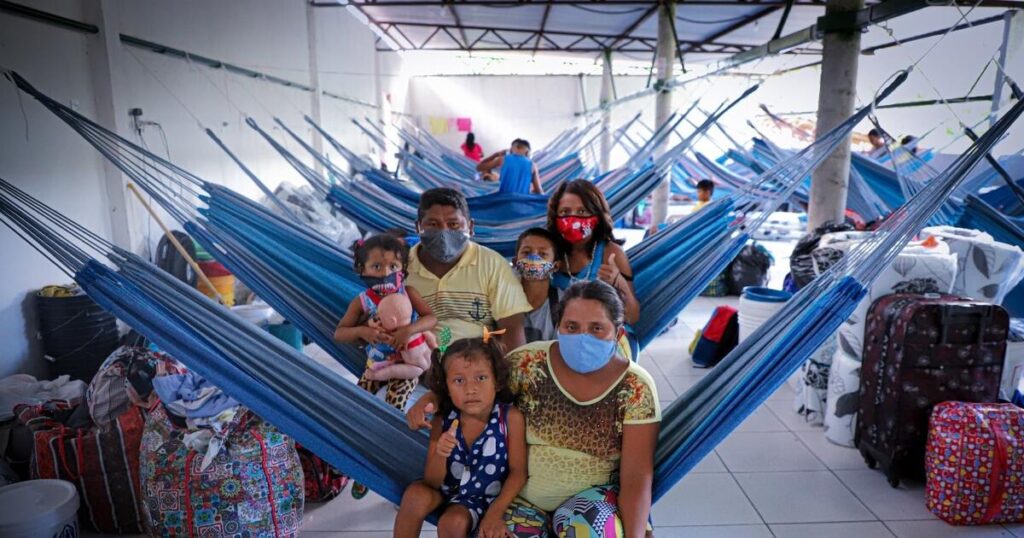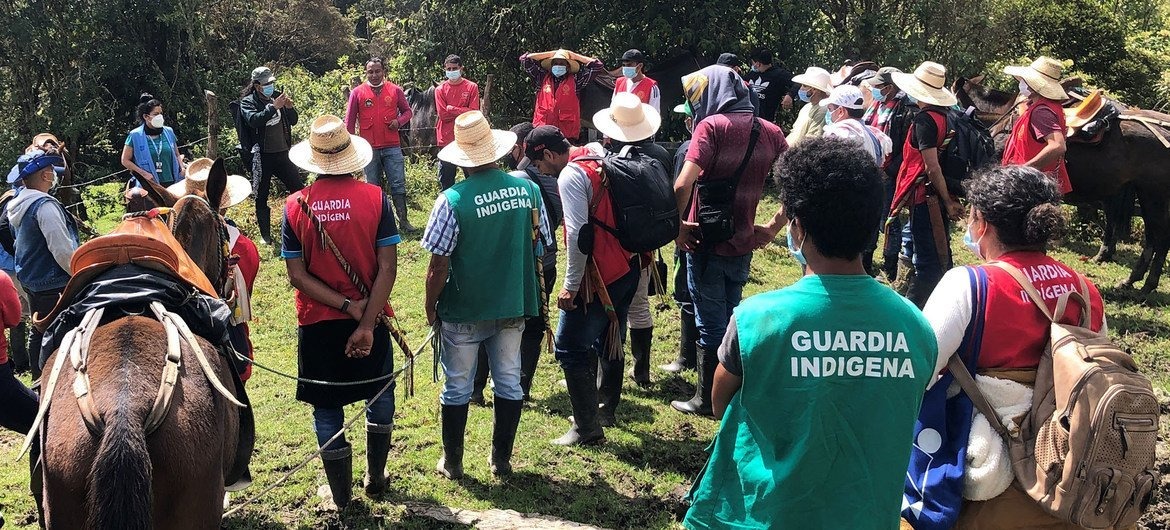SUMMARY
The “Climately Integrated Management of Venezuelan Indigenous Migrants and Refugees, in Colombia” program, executed by the ecofeminist organization Environmental Women Org, is proposed as a comprehensive and sustainable solution to address the humanitarian crisis faced by approximately 5,000 Wayuu indigenous migrants from the State of Zulia. , Venezuela, currently refugees in the regions of La Guajira and Magdalena, Colombia. This program is deployed over 9,800 hectares in the Colombian Andean mountains, seeking not only to mitigate immediate adversities but also to promote a long-term model of socioeconomic and environmental integration.
Educational Axis: This component of the program focuses on training migrants and refugees in sustainable agricultural practices, water management and soil conservation techniques, aimed at counteracting the effects of prolonged droughts and floods. It is estimated that at least 1,500 direct beneficiaries will acquire applicable knowledge for food self-sufficiency and water management in the first year. In addition, literacy and formal education programs will be implemented for children and adults, with the aim of ensuring that at least 75% of the school-age migrant population is integrated into the Colombian educational system.
Humanitarian Assistance: This axis focuses on providing immediate assistance in terms of food, access to drinking water and temporary accommodation for migrants and refugees. Food and hygiene kits will be distributed monthly to 5,000 people, ensuring coverage of basic needs during the first six months of implementation, while permanent housing solutions are developed. In addition, rainwater collection and purification systems will be installed to guarantee access to drinking water, directly benefiting the entire target population.
Communication: This axis seeks to establish effective communication channels between migrants, host communities, and local and national authorities. A digital platform will be developed to facilitate the exchange of information, available services, and integration opportunities. It is expected that, by the end of the first year, at least 80% of migrants and refugees will be actively using this platform, significantly improving assistance coordination and community integration.
Sustainability: With a focus on long-term sustainability, this axis promotes the creation of microbusinesses and agricultural cooperatives led by indigenous women, with the aim of strengthening the local economy and the self-sufficiency of migrants. It is projected that by the third year, at least 30 microbusinesses will be operational, generating stable income for their members and contributing to the local economy. In parallel, reforestation and biodiversity conservation projects will be implemented in areas affected by migration, with the purpose of restoring 2,000 hectares of Andean ecosystems in the first five years.
The “Climatically Integrated Management of Venezuelan Indigenous Migrants and Refugees, in Colombia” program represents an innovative and comprehensive model of humanitarian assistance, which not only addresses the immediate needs of indigenous Wayuu migrants and refugees, but also encourages their sustainable integration and respect for their rights and dignity, in harmony with the host communities and the environment.




